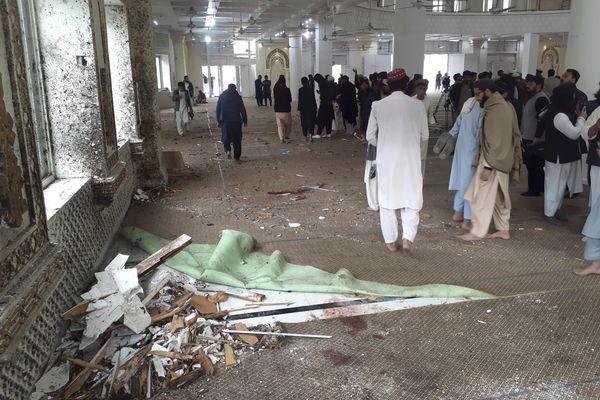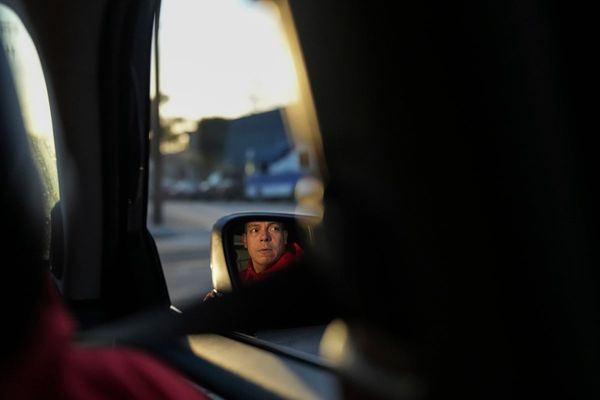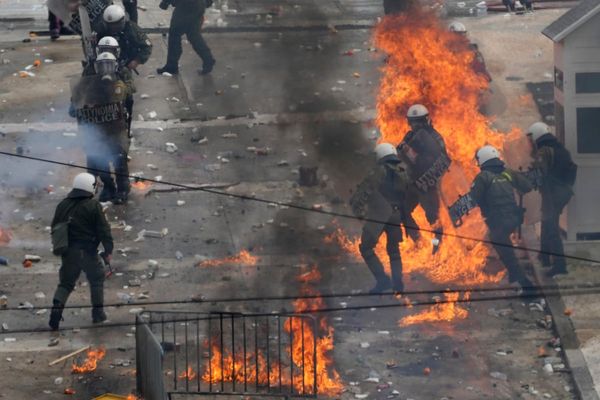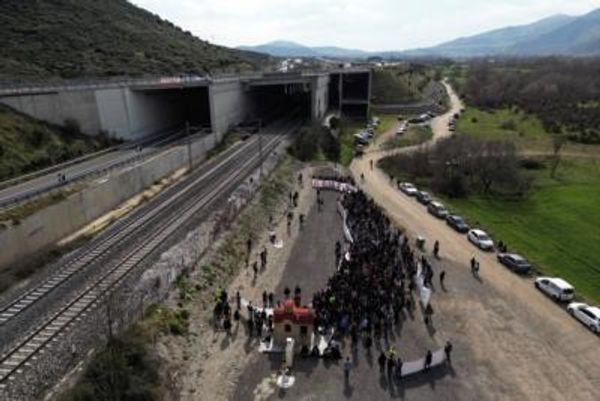This week Boris Johnson could face the biggest test yet of his premiership.
The British Prime Minister is under pressure to resign over a series of parties that happened at Downing Street while the rest of the country was under strict COVID-19 restrictions.
Those revelations — and Johnson's subsequent responses and excuses — have caused outrage among the public and even within his own Conservative Party, with several MPs calling on him to resign.
If he does not quit, he may be forced out in a vote of no-confidence by his own party, and it could all hinge on an internal report into the alleged law-breaking parties that is due to be released this week.
So how has it gone so wrong for mop-haired former London mayor?
'Party-gate'
At the end of November last year, the Daily Mirror newspaper first reported that a series of Christmas parties had occurred at Number 10 Downing Street — some of which Mr Johnson attended — during the second wave of the COVID-19 pandemic, in November and December 2020, when indoor mixing was banned in London.
In response to the story, Mr Johnson told the House of Commons that "all guidance was followed completely in Number 10" — a line he would continue to use throughout the scandal.
A week later, ITV News released video showing the Prime Minister's then-spokeswoman, Allegra Stratton, laughing and joking with her colleagues when she was asked about one of the parties during a mock press conference set up to test Downing Street's news briefing room that was shot on December 22, 2020.
The following day, Mr Johnson made a statement to the House of Commons to apologise, saying that he was "furious" to see the clip and telling MPs that he had been "repeatedly assured" that no party had taken place.
And then, on December 19, the Guardian newspaper published a picture from May 2020 showing Mr Johnson alongside his wife, Carrie, and up to 17 other staff in the garden of Downing Street, sitting around drinking wine and eating cheese.
Mr Johnson dismissed the photo, saying "those were people at work, talking about work".
The 'bring your own booze' party
But the party that has done the most damage to Johnson's standing was another one that happened on May 20, 2020, just a month after Mr Johnson himself had recovered from COVID-19.
The event, which was revealed by ITV News on January 10, was organised by Mr Johnson's Principal Private Secretary, Martin Reynolds, who sent an email to more than 100 people to "make most of the lovely weather" and gather in the garden of Number 10 Downing Street for drinks.
"Please join us and bring your own booze!" the email read.
Again, Mr Johnson issued a grovelling apology to the Commons, saying he had attended the "work event" to thank staff before returning to his office 25 minutes later.
After isolating for a week when his newborn daughter tested positive for COVID-19, Mr Johnson dug his own hole deeper with an excruciating pool interview with Sky News's Beth Rigby, denying that he knew of the party in advance and claiming that "nobody warned me it was against the rules".
Why has this angered so many?
Just an hour before the May 2020 "BYOB" event began, the then Culture Secretary, Oliver Dowden, told the nation during a press conference that they could only meet in groups of two outside, as per the restrictions at the time.
"You can meet one person outside of your household in an outdoor, public place, provided that you stay 2 metres apart," Mr Dowden said.
Across the country, people were being prevented from seeing loved ones in their final hours, from attending funerals in large numbers, and even being present for the birth of their children.
The same day the party happened, hospital wards throughout Britain were at breaking point with COVID-positive patients, and 363 new deaths were recorded.
The revelations have seen Mr Johnson's approval rating drop to an all-time low and has led to calls for him to resign.
Senior backbencher William Wragg told the BBC the Prime Minister's position was "untenable", while Scottish Conservative leader Douglas Ross spoke to Mr Johnson to tell him he believed he should resign.
The investigation
With pressure mounting after news of the Downing Street parties first broke, Mr Johnson announced that the country's top civil servant — Cabinet Secretary Simon Case — would lead an investigation into the parties, only for Case to step down a week later when it was revealed a party had been held in his own office around the same time.
The reins of the investigation were handed over to another senior civil servant, Sue Gray, and the probe was expanded to include up to 16 alleged gatherings that had taken place in and around Downing Street from the start of the pandemic.
It will include the two that happened in May 2020, as well as one held by staff at Number 10 Downing Street on the eve of Prince Philip's funeral, in April 2021, for which Mr Johnson apologised directly to the Queen.
Ms Gray's findings are expected to be handed to the Prime Minister this week, and he, in turn, will be expected to make the report public and make a statement about it in the House of Commons.
The Guardian has reported that Ms Gray's findings are likely to be statements of fact rather than include specific evidence, and any disciplinary action as a result of the findings will be up to Mr Johnson himself if it relates to him or to other ministers.
Mr Johnson has consistently urged MPs and others to judge him on the contents of the report and, in turn, hitched his political future to its findings — if it finds he was in the wrong, Tory MPs may move against him and install a new leader.
How could he be removed as prime minister?
Conservative MPs could install a new leader through a no-confidence vote in Mr Johnson, which would, in turn, result in a leadership ballot.
But to trigger a vote of no-confidence, at least 15 per cent of Tory MPs would have to write a letter to Sir Graham Brady, the chairman of the 1922 Committee of backbenchers, saying they had lost confidence in Mr Johnson as leader.
With the shock defection of MP Christian Wakefield to Labour last week, there are now 359 Conservative MPs sitting in the House of Commons, so the number of letters would need to total 54 to reach the 15 per cent mark.
Once that threshold is reached, a secret ballot of Tory MPs will be held and 180 votes against Mr Johnson would be needed to topple him, and he would be forced to resign and a leadership contest would then be held.
However, if he wins the no-confidence vote, under party rules, he could not be challenged again for a full year.
At this stage, political pundits believe between 20 and 40 letters have been handed in to the 1922 Committee chair, and all eyes will be on Ms Gray's report and its findings to determine if more letters come flooding in.







